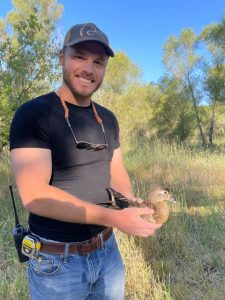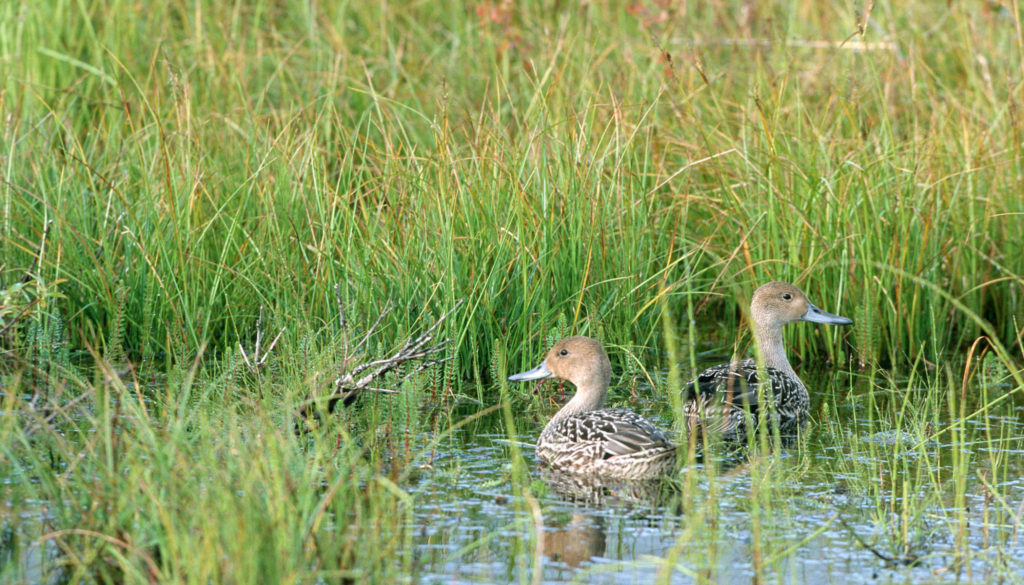The goal of Michael F.B. Nesbitt Family Research Fellowship is to support post-graduate education of wetland and waterfowl scientists, and thereby help train future leaders who will follow in the footsteps of Michael Nesbitt’s family.

This fellowship has been awarded to John Veon for his PhD research at the University of California, Davis. John’s research will investigate the efficacy of a novel wetland management strategy for reducing human-mosquito conflict, conserving wetland habitat and biodiversity, and providing nutritious food resources for wetland wildlife.
Traditional management practices for mosquito control in California often conflict with wetland management techniques that provide high quality habitat for wetland-dependent species. Integrated wetland management could be used to emulate a more natural hydrological cycle to meet multiple management objectives. John is experimentally investigating whether allowing water to persist throughout the summer in swales and small ponds of large wetland units (5-60 ha) in the Central Valley of California can regulate mosquito populations, enhance moist-soil seed production, and improve wetland habitat availability and waterfowl use. If effective, integrated wetland management could provide managers with a sustainable approach to wetland management.
About the Fellowship
Graduate students located at any North American university are eligible for this Fellowship. It will be awarded based upon the following criteria:
- The qualifications of the applicant; the scientific soundness of the student’s research proposal
- Originality and creativity in study design
- Expected contributions of the research to furthering waterfowl conservation
- The achievability of the work.
One award of up to $5,000/year (Canadian funds) is available to provide personal or research support for the successful applicant. The award is renewable for up to two additional years for PhD students, once for students pursuing a Master’s degree, assuming annual approval of a satisfactory progress report and the need for continuing financial support.
For additional information on this fellowship, download the Graduate Fellowships Background document.
Past Fellowship Winners
2022-2024: Ilsa Griebel, PhD. Quantifying the influence of environmental conditions and American black duck behavior and movements throughout the full annual cycle on subsequent productivity, University of Saskatchewan
2019-2021: Sarah Clements, PhD. A multi-species analysis of landscape effects of individual decision-making and fitness in wetland-dependent migratory shorebirds, University of Missouri
2016-2018: Tyler Harms, PhD. Improving waterfowl surveys to better inform conservation decisions in an intensively farmed landscape, Iowa State University



